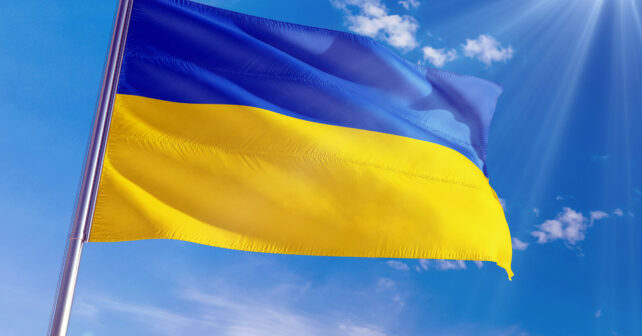
“I came here for my first visit in 1996,” McMurray says, “Five years into their separation from the Soviet Union. Now they know freedom and they’re not about to become a Soviet puppet republic ever again.”
Coping
Ukrainians are undergoing great stress, fear, anger, pain, hatred, and despair, says Dr. Volosovets. For health care workers who remained in Ukraine, there are long hospital shifts amidst a fear for the safety of their own families. There is constant doomscrolling online for news about the war and its victims and a feeling of uncertainty for the future.
“All these factors simply crush your nervous system and deplete its reserves,” he says. “I was trained to keep my mind calm and logical even in the most harsh situations.”
This knowledge also helps Dr. Volosovets treat patients and help colleagues, relatives, and friends by teaching them relaxation techniques, breathing exercises and special physical exercises to remain calm. “But the best treatment from anxiety and fear is work,” he says. “Work that helps my people. Work that helps my country and makes our common victory closer.”
In Kyiv, emergency physicians are seeing polytrauma, gunshot patients, brain concussions and other injuries. They are also seeing cases like heart attacks and strokes. For triage, Dr. Volosovets and his colleagues are using the standard M.A.R.C.H. approach (Massive hemorrhage, Airway, Respirations, Circulation, Head injury/Hypothermia) with further evacuation to hospitals with proper specialization, when possible, by ambulance or in the case of non-urgent injuries with the help of military or civilian transport.
However, there are great problems with transportation logistics inside towns due to the descruction of bridges and buildings. “Our ambulances are suffering most because of it,” Dr. Volosovets says. “Also, it appears that hospitals and doctors are a favorite target for Russians. They are intentionally bombarding our hospitals, killing our doctors and shooting at ambulances. The sign of a red cross has been turned into a target.”
Nonetheless, Ukrainian doctors remain true to their commitment to treat all injured people, including Russian soldiers. “They have received proper treatment in our war hospitals alongside our soldiers,” Dr. Volosovets says. “We do not make any difference between our patients.” He added that the question of judgment for war crimes is not a doctor’s jurisdiction and although the Russians are not respecting international laws of war and the Geneva Convention, Ukrainian doctors remain bound to these laws and medical ethics.
Pages: 1 2 3 4 | Single Page




One Response to “News From the Frontline: How Emergency Physicians in Ukraine Are Coping”
November 3, 2022
Carol mary MarshallGood luck and best regards to medical staff doing a great job